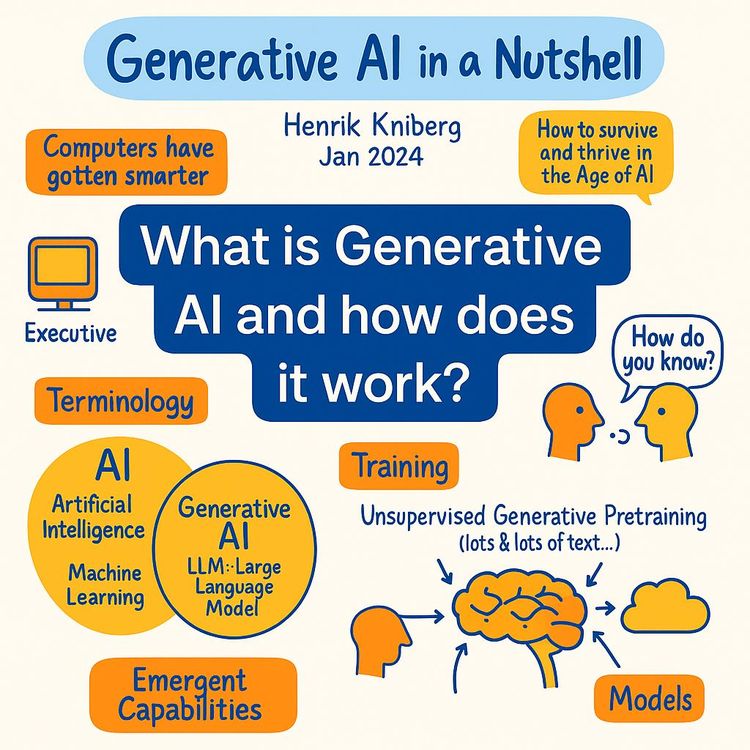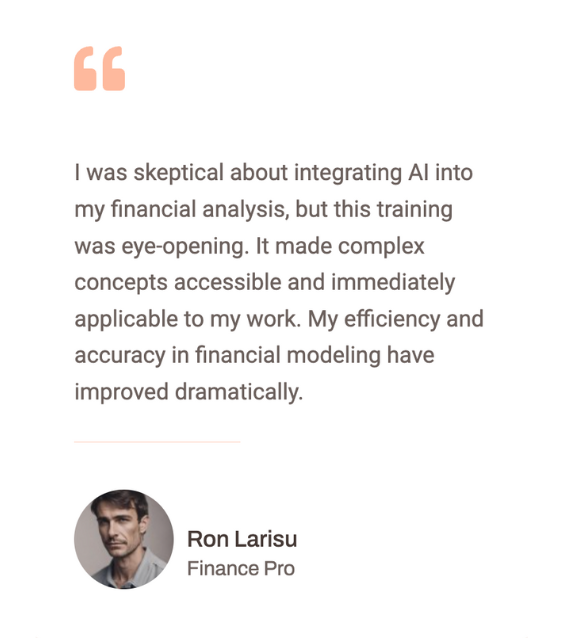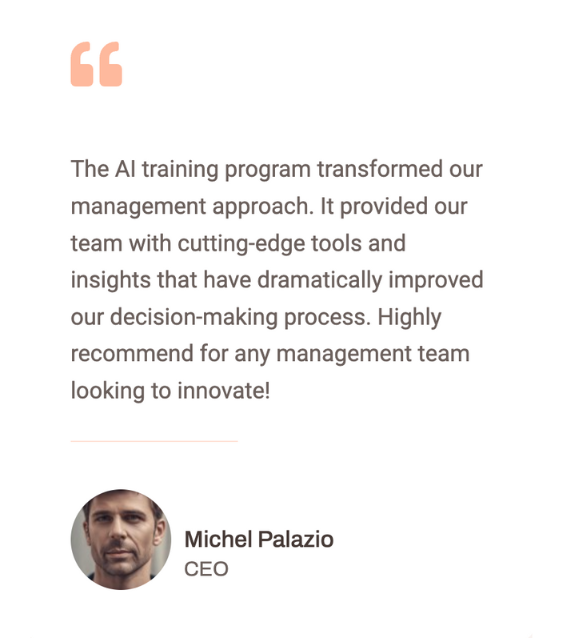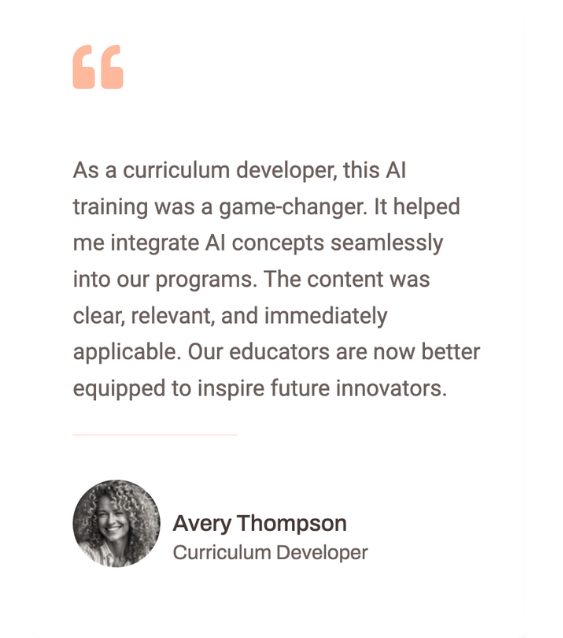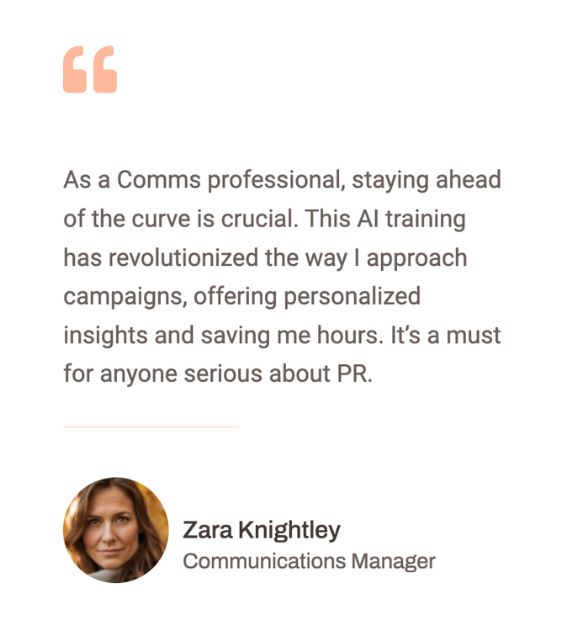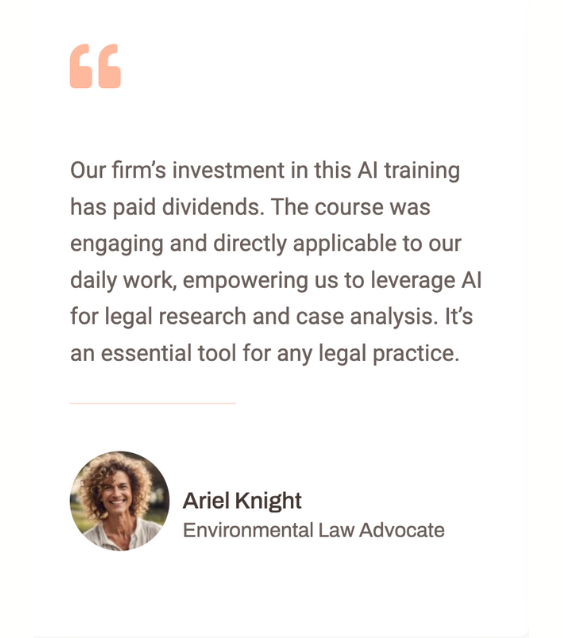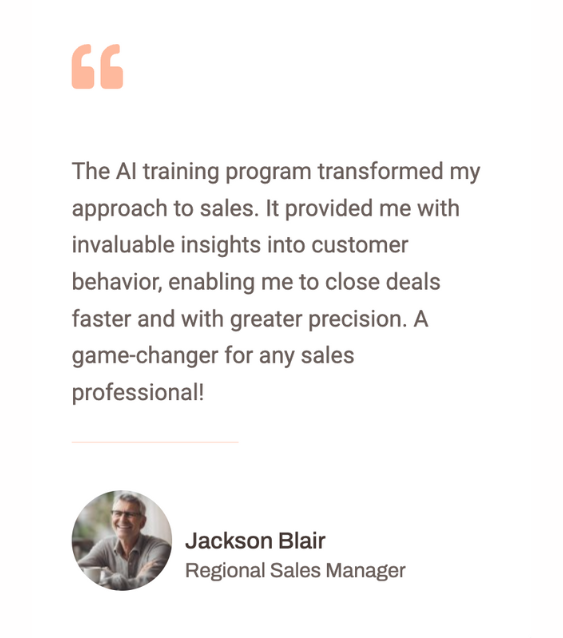Video Course: Understanding the top AI Tools For Finance
Navigate the future of finance with our course on AI tools. Discover transformative technologies that enhance efficiency, automate tasks, and boost strategic insights. Equip yourself to thrive in an AI-driven finance landscape.
Related Certification: Certification: Proficient Use of Leading AI Tools in Finance

Also includes Access to All:
What You Will Learn
- Identify the top AI tools for finance and their core use cases
- Automate financial reporting and narrative generation with Zebra AI
- Use AI for investment analysis and interactive planning with Bigdata.ai and Runway
- Streamline expense, receipt, and close processes using MMM, Ryu, and Forast
- Prepare audits, revenue recognition, and SAP optimisations with Trillon and Ziance
Study Guide
Introduction: Understanding the Value of AI in Finance
Welcome to the comprehensive guide on 'Understanding the Top AI Tools For Finance.' In this course, we will delve into the transformative impact of AI on the finance sector, exploring ten cutting-edge tools that are revolutionizing the way finance professionals work. By automating mundane tasks and enhancing analytical capabilities, these tools not only save time but also enable professionals to focus on strategic initiatives. This course is invaluable for anyone in the finance industry looking to stay competitive and efficient in an increasingly AI-driven landscape.
The Rise of AI in Finance
The finance industry is undergoing a significant transformation with the rapid adoption of AI technologies. This shift is driven by the need for efficiency, accuracy, and the ability to derive deeper insights from financial data. AI is no longer a futuristic concept but a present-day necessity. Over the past few years, a multitude of AI tools have emerged, each designed to address specific challenges faced by finance professionals. These tools are not just about automation; they are about enhancing the strategic capabilities of finance teams.
Automation as a Key Benefit
One of the primary advantages of AI in finance is automation. By automating repetitive and time-consuming tasks, AI frees up finance professionals to focus on more strategic and value-added activities. For instance, tasks like data entry, report generation, and receipt processing can be automated, saving "hours each day" and allowing professionals to concentrate on decision-making and strategy development.
Exploring the Top AI Tools for Finance
Zebra AI: Automated Report Generation
Zebra AI is a powerful tool that automates the generation of management-ready reports from Excel data, including commentaries. Imagine uploading an Excel file and receiving a complete report with visualizations and narrative descriptions. This tool is particularly beneficial for finance teams that regularly prepare detailed reports for management, saving significant time and ensuring consistency and accuracy.
Practical Application: A finance manager can use Zebra AI to quickly generate quarterly financial reports, complete with graphs and commentary, which can be directly presented to the board.
Tip: Ensure your Excel data is well-structured to maximize the effectiveness of Zebra AI in generating accurate reports.
Bigdata.ai: Investment Analysis and Insights
Bigdata.ai is akin to a finance-focused ChatGPT, offering investment analysis with access to institutional-quality data. It allows users to create graphs and gain live insights for stock analysis and report preparation. This tool is invaluable for investment analysts who need to process vast amounts of data quickly and accurately.
Practical Application: An analyst can use Bigdata.ai to perform a comprehensive analysis of a company's stock performance, leveraging real-time data to make informed investment decisions.
Tip: Regularly update your knowledge of market trends to make the most of the insights provided by Bigdata.ai.
MMM (Mimo): AI-Powered Expense Management
MMM (Mimo) revolutionizes expense management by automatically recognizing information from invoices and receipts and booking them into the system. It also offers AI-driven accounting allocation for employee spending, making it an essential tool for finance departments handling large volumes of expense transactions.
Practical Application: A finance team can streamline its expense management process by using MMM to automatically categorize and record expenses, reducing errors and saving time.
Tip: Ensure all invoices and receipts are scanned clearly to improve the accuracy of data recognition by MMM.
Forast: Automating Finance Close Processes
Forast specializes in automating the finance close process, including reconciliations, variance analyses, and repetitive journal entries. This tool is particularly beneficial for companies with complex accounting operations and consolidations.
Practical Application: A large corporation can use Forast to automate its monthly close process, ensuring timely and accurate financial statements.
Tip: Regularly review and update the natural language descriptions used in Forast to maintain the accuracy of journal entries.
Runway: Engaging Financial Planning
Runway is a financial planning tool that combines the ease of use of a video game with the functionality of Notion, allowing users to build financial plans interactively. It uses AI to query financial models and generate narratives for management, making it particularly useful for startups and growing companies.
Practical Application: A startup can use Runway to develop a financial model that aligns with its growth strategy, using AI-generated insights to guide decision-making.
Tip: Engage with Runway regularly to refine your financial models and ensure they reflect current business realities.
Ryu: Streamlining Receipt Processing
Ryu automates the processing of receipts, ensuring compliance with company policies. This tool relieves finance teams from the tedious task of manual receipt processing, allowing them to focus on more valuable work.
Practical Application: A finance department can use Ryu to automate the processing of employee expense reports, ensuring policy compliance and reducing manual workload.
Tip: Train employees on how to submit receipts correctly to maximize the benefits of using Ryu.
Trillon: Comprehensive Audit Preparation
Trillon offers AI-powered functions for audit preparation, lease accounting, and revenue recognition. It analyzes financial statements to identify potential issues, making it a valuable tool for auditors and finance teams involved in complex accounting processes.
Practical Application: An auditor can use Trillon to streamline the audit process by quickly identifying discrepancies and ensuring compliance with accounting standards.
Tip: Regularly update Trillon with the latest financial data to maintain the accuracy and relevance of its analyses.
Puzzle: Accounting Automation for Startups
Puzzle is an accounting automation platform designed for startups with strong API-connected subledgers. It aims to automate 99% of accounting tasks, integrating with tools like Slack to provide insights and reports quickly.
Practical Application: A startup can leverage Puzzle to automate its accounting processes, freeing up resources to focus on growth and innovation.
Tip: Ensure your subledger data is accurate and up-to-date to maximize the effectiveness of Puzzle's automation capabilities.
Ziance (Zapliance): Enhancing SAP Use Cases
Ziance focuses on SAP use cases, identifying duplicate invoices and potential VAT recovery opportunities within SAP systems. This tool is particularly useful for companies using SAP as their primary ERP system.
Practical Application: A multinational corporation can use Ziance to enhance its SAP processes, ensuring compliance and uncovering cost-saving opportunities.
Tip: Regularly audit your SAP data to ensure Ziance can effectively identify discrepancies and opportunities.
Numra: Virtual Assistant for Accounting
Numra has developed "Mari," a virtual assistant that operates on top of existing accounting systems. Mari can handle accounts receivable, payables, and even complex Excel tasks, making it a versatile tool for finance teams.
Practical Application: A manufacturing company can use Mari to automate routine accounting tasks, allowing finance staff to focus on strategic initiatives.
Tip: Continuously train Mari on new tasks and processes to expand its capabilities and enhance its value to your organization.
Focus on Specific Problems and Solutions
Each AI tool presented addresses specific pain points within the finance sector. From automating manual data entry to ensuring compliance with complex regulations, these tools offer targeted solutions that enhance efficiency and accuracy.
Emerging Trends in AI for Finance
The trend of AI becoming increasingly specialized and integrated into niche areas of finance is evident. Tools like Ziance and Puzzle demonstrate how AI can be tailored to specific business needs and software ecosystems, offering solutions that align with existing processes and systems.
Call to Action: Embrace AI in Finance
Finance professionals are encouraged to explore these AI tools, test their functionalities, and integrate them into their workflows. Staying informed about ongoing developments in AI is crucial, as new tools and capabilities continue to emerge.
Conclusion: The Strategic Role of AI in Finance
By completing this course, you have gained a comprehensive understanding of the top AI tools for finance and their potential to transform the industry. The thoughtful application of these tools can lead to significant efficiency gains, improved accuracy, and the ability to focus on strategic initiatives. As AI continues to evolve, staying informed and adaptable will be key to leveraging its full potential in the finance sector.
Podcast
Frequently Asked Questions
Welcome to the FAQ section for the 'Video Course: Understanding the Top AI Tools for Finance.' This comprehensive guide is designed to address common questions and provide insights into how AI is transforming the finance industry. Whether you're a beginner or an experienced professional, these FAQs will help you understand the practical applications of AI in finance, the tools available, and how to effectively integrate them into your work.
Why should finance professionals consider using AI tools in their work?
AI tools offer significant advantages for finance professionals by automating repetitive tasks, enhancing analytical capabilities, and ultimately saving time. Incorporating AI can free up finance professionals from tedious activities like manual data entry, report generation, and receipt processing, allowing them to focus on more strategic and value-added work. This can lead to increased efficiency, improved accuracy, and the ability to derive deeper insights from financial data.
What are some examples of AI tools that can automate financial reporting and analysis?
Several AI-powered tools are designed to streamline financial reporting and analysis. Zebra AI excels at automatically generating reports and commentaries from uploaded Excel files, adhering to IBCS standards and making them management-ready. Bigdata.to provides an investment-focused AI analysis platform with access to institutional-quality data, enabling users to conduct in-depth stock analysis and create insightful graphs. Runway focuses on financial planning, offering an intuitive interface to build financial models, query data using AI, and generate management narratives. Trillion offers AI-powered features for audit preparation, lease accounting, and revenue recognition, automating complex processes in these areas.
How can AI help with expense management and accounting processes?
AI plays a crucial role in automating and improving expense management and accounting workflows. MM (Moss) uses AI to recognise information from invoices and receipts, automatically booking them into the system and allocating employee spending to the correct categories. Forast leverages AI to automate finance close processes, including reconciliations, variance analyses, and the coding of repetitive journal entries based on natural language descriptions. Ryu automates the processing of employee receipts, ensuring compliance with company policies and freeing up finance teams from this manual task. Puzzle is designed for startups with strong underlying data systems, automating up to 99% of accounting tasks by integrating with various subledgers.
Are there AI tools specifically designed for more complex accounting tasks like consolidation and audit?
Yes, several AI tools address complex accounting functions. Forast is highlighted for its ability to automate aspects of the finance close, which often includes consolidation processes. Trillion specifically targets audit preparation by analysing financial statements to identify potential issues and cross-referencing information, a task that can be particularly demanding in audits. Zpliance, focused on SAP users, offers solutions for identifying duplicate invoices and uncovering potential VAT recovery opportunities, tasks that can be challenging in large, complex accounting systems.
What kind of AI-powered virtual assistants are emerging in the finance domain?
Numra, based in Ireland, has developed a virtual assistant called Mari. This AI assistant integrates with existing accounting systems to automate tasks such as managing accounts receivable and payable, and even performing complex Excel-based work. The concept of a virtual AI assistant aims to provide on-demand support for various accounting and finance functions.
Are there AI tools tailored for specific business types or software platforms?
Yes, some AI tools are designed with specific business types or software platforms in mind. Puzzle is particularly suited for startups with well-structured data in their subledgers. Zpliance is specifically focused on users of SAP, addressing challenges common within that enterprise resource planning system. Numra, while a virtual assistant, currently focuses on assisting manufacturing companies.
How can finance professionals stay updated on the latest advancements in AI tools for their field?
Resources like Complete AI Training offer video courses and other materials dedicated to understanding and integrating AI in various professions, including finance. Following industry publications, attending webinars, and exploring platforms that showcase new AI tools can also help finance professionals stay informed about the rapidly evolving landscape of AI in finance. The source material itself promotes further learning through subscribing to their channel for more videos on specific use cases of generative AI in corporate finance.
What should finance professionals consider when evaluating and adopting new AI tools?
When considering AI tools, finance professionals should assess the specific needs and pain points of their organisation and determine which tools offer the most relevant solutions. Factors to consider include the tool's ability to integrate with existing systems, the quality and security of the data it uses, the ease of implementation and use, the level of support provided by the vendor, and the potential return on investment in terms of time savings and improved efficiency. It's also important to note any prerequisites for using certain tools, such as the quality of underlying data systems, as highlighted with Puzzle.
What is AI automation in finance?
AI automation in finance refers to the use of artificial intelligence technologies to perform repetitive and time-consuming tasks without human intervention. This includes processes such as data entry, financial analysis, and report generation. By automating these tasks, finance professionals can focus on more strategic activities, improving overall efficiency and accuracy in financial operations.
How does AI enhance financial analysis?
AI enhances financial analysis by providing advanced data processing and pattern recognition capabilities. AI tools can quickly analyse large datasets to identify trends, anomalies, and insights that might be missed by human analysts. This enables more informed decision-making and strategic planning based on comprehensive and accurate financial data.
What are the benefits of AI in financial planning?
AI in financial planning offers several benefits, including improved accuracy, efficiency, and strategic insight. AI tools can automate data collection and analysis, allowing finance teams to create more accurate forecasts and budgets. Additionally, AI can provide predictive insights, helping organisations anticipate market trends and make proactive financial decisions.
What are the challenges of implementing AI in finance?
Implementing AI in finance comes with challenges such as data quality, integration with existing systems, and the need for skilled personnel. Ensuring high-quality data is crucial for AI models to function effectively. Additionally, integrating AI tools with legacy systems can be complex and may require significant technical expertise. Organisations must also invest in training staff to effectively use and manage AI technologies.
How does AI improve audit preparation?
AI improves audit preparation by automating data analysis and identifying potential discrepancies in financial statements. AI tools can quickly scan and cross-reference large volumes of financial data, highlighting areas that require further investigation. This not only speeds up the audit process but also enhances the accuracy and reliability of audit outcomes.
How can AI tools assist in revenue recognition?
AI tools assist in revenue recognition by automating the interpretation of complex contracts and applying accounting standards consistently. AI can analyse contract terms and determine the appropriate timing and method for recognising revenue, ensuring compliance with accounting principles and reducing manual errors.
What is the role of AI in invoice processing?
AI plays a crucial role in invoice processing by automating the extraction and categorisation of data from invoices. AI tools can quickly recognise and process invoice information, reducing manual data entry and ensuring timely and accurate payments. This enhances the efficiency of accounts payable operations and improves cash flow management.
How does generative AI apply to finance?
Generative AI in finance can be used to create financial narratives, reports, and forecasts. It leverages natural language processing to generate human-like text based on financial data, enabling automated report writing and strategic analysis. This can save time for finance teams and provide consistent, high-quality financial documentation.
How does AI enhance data integration?
AI enhances data integration by automating the process of combining data from multiple sources into a unified view. AI tools can efficiently handle data from various systems, ensuring consistency and accuracy while reducing the need for manual intervention. This is particularly beneficial for organisations with complex data environments, enabling seamless data flow and improved decision-making.
What are the prerequisites for successful AI implementation in finance?
Successful AI implementation in finance requires high-quality data, robust IT infrastructure, and skilled personnel. Ensuring data accuracy and consistency is crucial for AI models to perform effectively. Organisations must also invest in the necessary technology infrastructure and provide training to staff to manage and operate AI systems efficiently.
How can SMEs benefit from AI in finance?
Small to medium-sized enterprises (SMEs) can benefit from AI in finance by automating routine tasks, reducing operational costs, and gaining access to advanced analytics. AI tools can help SMEs streamline financial processes, improve cash flow management, and make data-driven decisions, providing a competitive edge in the marketplace.
What are the security concerns with AI in finance?
Security concerns with AI in finance include data privacy, the risk of cyberattacks, and the potential misuse of AI-generated insights. Ensuring robust cybersecurity measures and compliance with data protection regulations is essential to mitigate these risks. Organisations should also implement ethical guidelines to prevent the misuse of AI technologies.
How can AI tools improve financial compliance?
AI tools can improve financial compliance by automating the monitoring and analysis of transactions to ensure adherence to regulatory standards. AI can quickly identify anomalies and potential compliance issues, enabling organisations to take corrective actions promptly. This enhances the reliability of financial operations and reduces the risk of non-compliance penalties.
What is the future of AI in finance?
The future of AI in finance is promising, with continued advancements in technology and increased adoption across the industry. AI is expected to further enhance efficiency, accuracy, and strategic decision-making in finance. Emerging trends include the use of AI for real-time data analysis, personalised financial services, and enhanced risk management, transforming how financial institutions operate and deliver value to their clients.
Certification
About the Certification
Show you know how to use AI in finance with confidence. Gain practical expertise in leading AI tools and demonstrate your ability to drive informed decisions and innovation in the evolving financial landscape.
Official Certification
Upon successful completion of the "Certification: Proficient Use of Leading AI Tools in Finance", you will receive a verifiable digital certificate. This certificate demonstrates your expertise in the subject matter covered in this course.
Benefits of Certification
- Enhance your professional credibility and stand out in the job market.
- Validate your skills and knowledge in cutting-edge AI technologies.
- Unlock new career opportunities in the rapidly growing AI field.
- Share your achievement on your resume, LinkedIn, and other professional platforms.
How to complete your certification successfully?
To earn your certification, you’ll need to complete all video lessons, study the guide carefully, and review the FAQ. After that, you’ll be prepared to pass the certification requirements.
Join 20,000+ Professionals, Using AI to transform their Careers
Join professionals who didn’t just adapt, they thrived. You can too, with AI training designed for your job.

